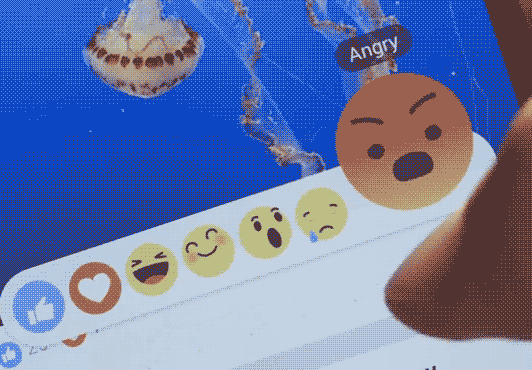Facebook Emoticon-Likes, does anyone use them?

I am sure you have noticed that the nice little like button as we know it on Facebook has disappeared. It has been replaced by a number of nice little Emojis that help the user express its feelings in a lot more profound and sophisticated way than a simple like…
Wait, did I just say sophisticated? Maybe I meant to say complicated. The Emojis make it a little bit easier for Facebook users to express how they feel about a certain post, text, image or video, but do they really add a lot of value?
Mark Zuckerberg claimed right after his first “post” regarding the new Emojis, that the most used “like” Emoji was the little red heart. Yet, when I look at my own personal Facebook wall, I do not see that reflected in any way. After checking 65 posts (I know not the biggest of samples, but enough to show the general trend), I have come to the following split of how people have been responding to the posts of myself and my friends:
- Like: 69%
- Love: 14%
- Haha: 2%
- Yay: 4%
- Wow: 8%
- Sad: 1%
- Angry: 2%

Why don’t my friends use the Emojis?
Now why does it seem to be that people are not really using the Emoticons? Or at least, nearly half of my friends in the sample that I took still used the standard like button as their preferred emoticon of choice.
Love is the most popular reaction so far, which feels about right to me! (Mark Zuckerberg, 23/02/2016 @facebook)
My first hunch would be is that they do not feel comfortable expressing that amount of emotions. A simple “like” seems to suffice for many of my friends at least. I do not know whether this is due to the Socio-Demographic sample that my friends make up of (most of my friends are between 30/40 years old, and to a large extent from Northern European countries. I could imagine a younger user audience to adjust to the new settings more quickly and to be better with emoticons than many of my friends.
How will the Emoticons affect the number of comments?
I also wonder how this will affect the number of comments underneath our posts in general. I read an interesting article in ZEIT this morning, in which the writer criticized the way people have started using emoticons as a means of communication more and more. The writer was worried that Facebooks move to focus more on emoticons than on text, could backfire and people in our western society would slowly lose the ability to communicate with one another in a “normal fashion” – without using Emoticon-Hierogliphics.
If that hypothesis holds true, then the number of comments should drastically decrease in the course of the next few months. If we can “say it all” with our emoticons, there is no need anymore for more complex and time intense sentence constructions.
Whether you like it or not, the Emoticons are now a part of our every day lives, and here to stay. Thanks for the upgrade Facebook. 🙂 😉 😀 :-$…